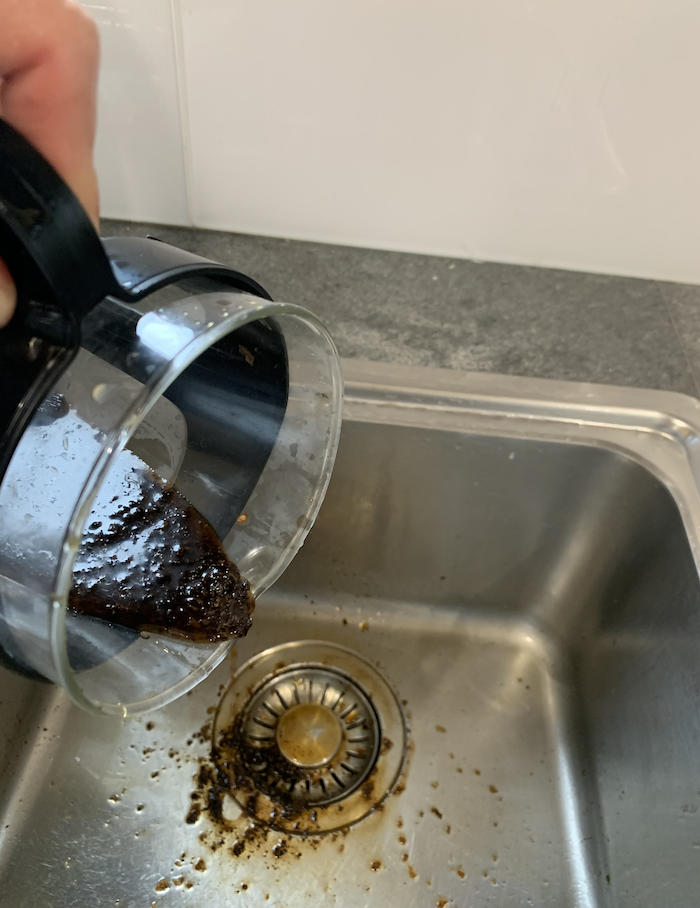Is It Safe to Dispose of Coffee Grounds Down the Sink? - Exploring Consequences
Is It Safe to Dispose of Coffee Grounds Down the Sink? - Exploring Consequences
Blog Article
Are you currently trying to locate critical info around Can Coffee Grounds Go Down the Drain or Sink??

If you're a passionate coffee drinker, you might be wondering about the most effective way to deal with your coffee premises. While it may seem hassle-free to wash them down the sink, this technique can bring about a number of issues for both your plumbing and the setting. In this short article, we'll check out whether it's safe to put coffee premises down the sink and review alternative disposal techniques to take into consideration.
Alternatives to Disposing of Coffee Grounds
Garbage Disposal
If you do not have a composting configuration, another option is to simply toss your coffee grounds in the garbage. Make certain to seal them in a compostable bag or container to stop odors and leakage. While this technique does not provide the exact same ecological advantages as composting, it's a risk-free and practical method to dispose of coffee premises.
Composting
One environment-friendly option for taking care of coffee premises is to compost them. Coffee grounds are abundant in nitrogen, making them an outstanding addition to compost piles or bins. As they disintegrate, they add nutrients to the soil, boosting its fertility and texture.
Threats of Putting Coffee Grounds Down the Sink
Plumbing Issues
One of the main worry about getting rid of coffee grounds down the sink is the risk of clogging your pipelines. Coffee premises don't liquify in water and can accumulate with time, creating a thick sludge that can block drains and result in expensive plumbing repair work.
Ecological Impact
Beyond the prospective damages to your plumbing, putting coffee grounds down the sink can also hurt the environment. When cleaned right into the sewer system, coffee premises can contribute to obstructions in sewage system lines and therapy facilities. Furthermore, the high focus of raw material in coffee grounds can diminish oxygen levels in rivers, negatively impacting marine life.
Tips for Proper Disposal
Routine Maintenance
Regardless of just how you pick to dispose of your coffee premises, it's important to maintain your plumbing regularly. Schedule periodic drainpipe cleansings to eliminate any kind of accumulation and make certain that your pipelines continue to be clear and free-flowing.
Make Use Of a Sink Strainer
To prevent coffee premises from entering your sink's drain in the first place, consider making use of a sink strainer. These cost-effective tools catch solid particles, consisting of coffee grounds, avoiding them from triggering obstructions.
Verdict
While it may be appealing to wash coffee grounds down the sink for ease, doing so can have significant effects for your plumbing and the environment. Instead, take into consideration composting your coffee premises or taking care of them in the trash. By taking on accountable disposal methods, you can appreciate your coffee guilt-free while lessening your ecological impact.
Coffee Grounds Down The Drain: Are They OK?
Can Coffee Grounds Go Down the Sink?
You may be thinking, “But I pour them down the sink drain every day and I’ve never had a clogged drain!” You see, coffee grounds come from coffee beans, which are virtually rock hard by the time they’re ground and brewed. You certainly wouldn’t want to grind up the pit from a peach, apricot, or nectarine that is about just as hard because they wouldn’t break down like other foods, and it’s the same with coffee beans!
If you usually grind coffee beans in the garbage disposal because it seems the cleanest and convenient, we don’t fault you for that. And anyone who has ever had to clean up the trash with spilled coffee grounds after a dog got into it would understand the rationale. Unfortunately, coffee grounds do not break down in water, so instead of grinding up and washing away as normal foods do in a garbage disposal, they clump together and as time goes by, the grounds can form a clump and pack the drain until it develops a clog.
What to Do With Coffee Grounds
So, what do you do with coffee grounds if you can't put them down the drain? You could of course just throw them in the garbage, but we encourage you to give these practical uses for them a try!
Since coffee grounds contain key minerals for plant growth, you can use them to fertilize your garden. Coffee grounds not only fertilize gardens because they are mineral-rich, but they are also great at absorbing contaminants in the soil, particularly heavy metals. Coffee grounds are said to attract worms, which help gardens flourish. You can use coffee grounds as fertilizer by sprinkling them around your plants. You can compost your coffee grounds and use them at a later time. Coffee grounds are great insect repellents when you place them in bowls or sprinkle them around the areas you want to repel insects. To remove fleas from your dog or cat, simply shampoo your pet then rub coffee grounds throughout their fur. Rinse them off and dry as usual. Like baking soda, used coffee grounds can eliminate odors. You can place them in a bowl in the fridge and let them do the work! Mix coffee grounds with coconut oil for a wonderful face or body scrub, or to reduce the appearance of cellulite. https://www.wintershomeservices.com/blog/2019/august/coffee-grounds-down-the-drain-are-they-ok-/

I was introduced to that article about Is it safe to dispose of coffee grounds down the sink? from a friend on a different web page. Do you know about another person who is looking into the topic? Take a moment to share it. I value reading our article about What are the consequences of putting coffee grounds.
Schedule A Service Report this page